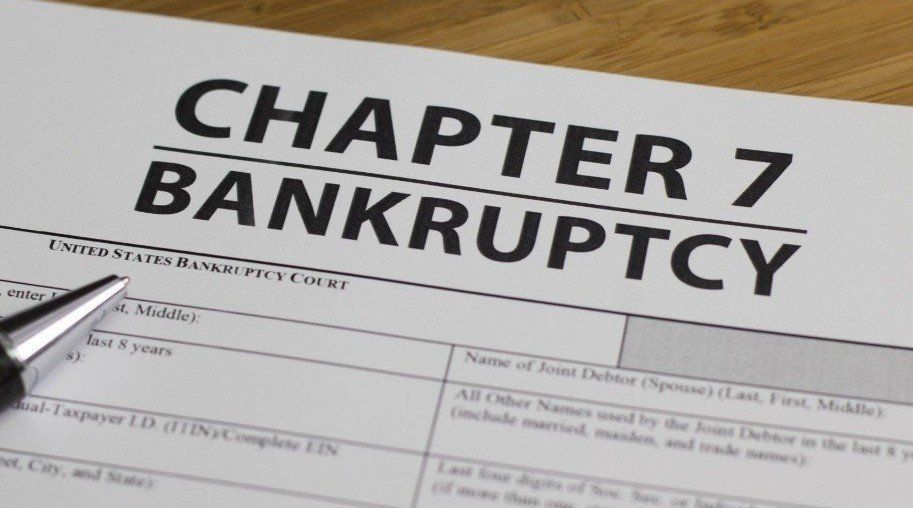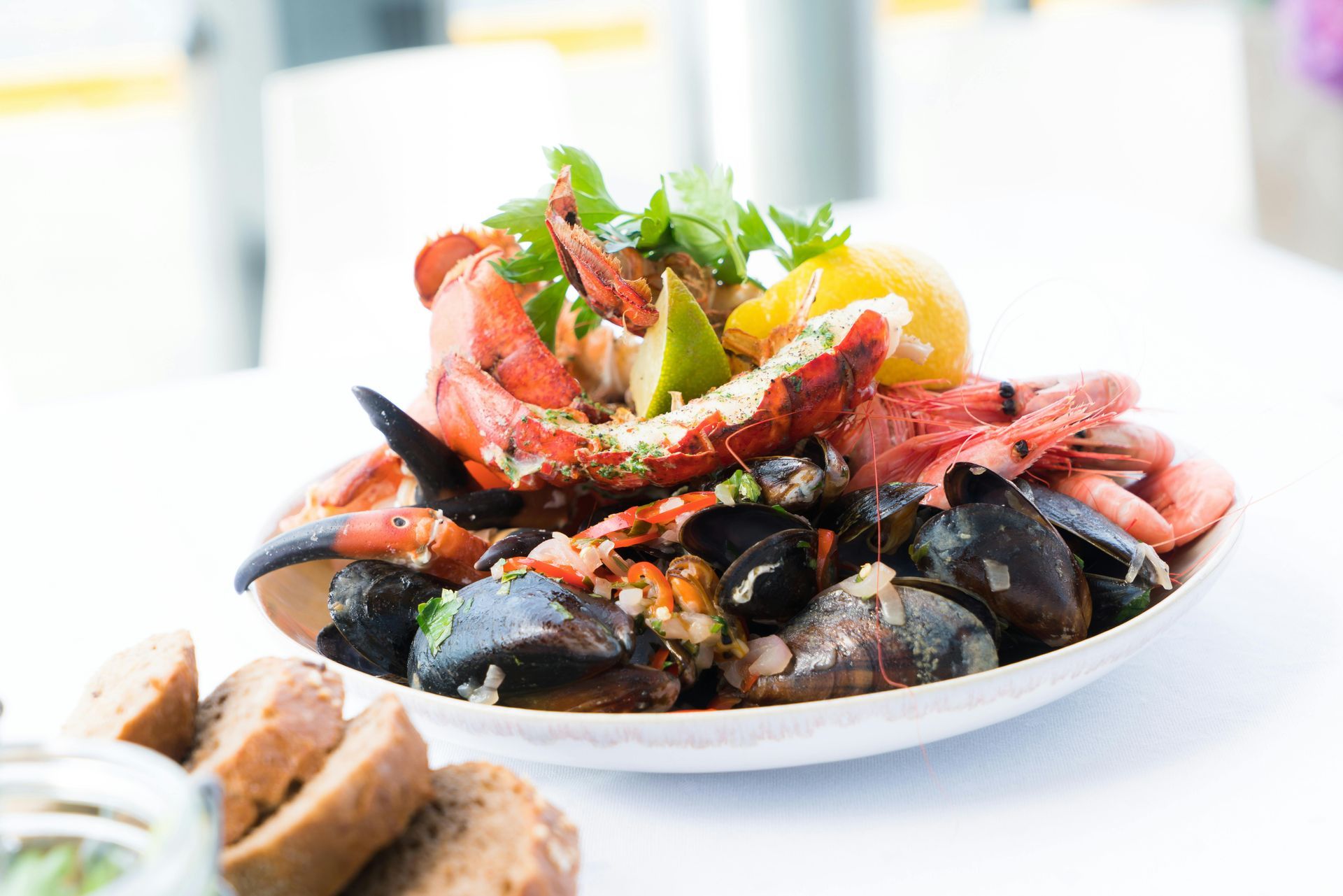New Bankruptcy Exemptions Make it Easier to File Chapter 7
- By John P. Brooke
- •
- 10 Oct, 2018
- •
23 May, 2016

There are new New York Bankruptcy exemptions in place as of January 2011. The new exemptions were signed into law by the outgoing governor and now make it easier and more favorable for you to file for bankruptcy. Here is a breakdown of the new exemption laws:
1. Homestead - $150,000 per debtor in Nassau, Suffolk and Queens.
2. Motor Vehicle - $4,000 per auto per debtor($10,000 if handicapped equipt)
3. Personal Injury - $7,500
4. Annuity - All amounts are exempt if they are reasonably necessary for the support of the debtor and his/her dependants except as limited by sec. 283.
5. Cash - if the debtor does not use the homestead exemption it is $5,000
6. Wedding ring - all
7. Watch - $1000.
8. Tools of the trade - $3,000
9. Wild Card - $1,000 of additional personal property or cash if the debtor does not use the homestead exemption.
These are the new New York exemptions but debtors are now also allowed to choose the federal exemptions instead which have their own benefits. The federal exemptions would be more favorable to a homeowner who does not have to use the homestead exemption to protect the equity in their home and allows the debtor up to approximately $12,000 as a "wild card" to protect any personal property. This means if you elect the federal exemptions you can protect up to $12,000 of cash, tax refund, excess equity in a car, tools, etc.

With genetic testing company 23andMe filing for Chapter 11 bankruptcy protection and courting bidders, the DNA data of millions of users is up for sale.
A Silicon Valley stalwart since 2006, 23andMe has steadily amassed a database of people’s fundamental genetic information under the promise of helping them understand their disposition to diseases and potentially connecting with relatives.
But the company’s bankruptcy filing Sunday means information is set to be sold, causing massive worry among privacy experts and advocates.
“Folks have absolutely no say in where their data is going to go,” said Tazin Kahn, CEO of the nonprofit Cyber Collective, which advocates for privacy rights and cybersecurity for marginalized people.
“How can we be so sure that the downstream impact of whoever purchases this data will not be catastrophic?” she said.
A spokesperson for 23andMe said in an emailed statement that there will be no change to how the company stores customers’ data and that it plans to follow all relevant U.S. laws.
But Andrew Crawford, an attorney at the nonprofit Center for Democracy and Technology, said genetic data lawfully acquired and held by a tech company has almost no federal regulation to begin with.
Not only does the United States not have a meaningful general digital privacy law, he said, but Americans’ medical data faces less legal scrutiny if it’s held by a tech company rather than by a medical professional.
The Health Insurance Portability and Accountability Act (HIPAA), which regulates some ways in which health data can be shared and stored in the United States, largely applies only “when that data is held by your doctor, your insurance company, folks kind of associated with the provision of health care,” Crawford said.
“HIPAA protections don’t typically attach to entities that have IOT [internet of things] devices like fitness trackers and in many cases the genetic testing companies like 23andMe,” he said.
There is precedent for 23andMe’s losing control of users’ data.
In 2023, a hacker gained access to the data of what the company later admitted were around 6.9 million people, almost half of its user base at the time.
Article credited from NBC News
Restaurant chain Hooters of America filed for bankruptcy in Texas on Monday, seeking to address its $376 million debt by selling all of its company-owned restaurants to a franchise group backed by the company’s founders.
Hooters, like other casual dining restaurants, has struggled in recent years due to inflation, the high costs of labor and food, and declining spending by cash-strapped American consumers. The company currently directly owns and operates 151 locations, with another 154 restaurants operated by franchisees, primarily in the United States.
The privately-owned company, which shares a private equity owner with recently-bankrupt TGI Fridays, intends to sell all corporate-owned locations to a buyer group comprised of two existing Hooters franchisees, who operate 30 high-performing Hooters locations in the U.S., mainly in Florida and Illinois.
Hooters did not disclose the purchase price of the transaction, which must be approved by a U.S. bankruptcy judge before it becomes final.
Founded in 1983, Hooters became famous for its chicken wings and its servers’ uniform of orange shorts and low-cut tank tops.
The buyer group is backed by some of Hooters’ original founders, and it pledged to take Hooters “back to its roots.”
“With over 30 years of hands-on experience across the Hooters ecosystem, we have a profound understanding of our customers and what it takes to not only meet, but consistently exceed their expectations,” said Neil Kiefer, a member of the buyer group and the current CEO of the original Hooters’ location in Clearwater, Florida.
Hooters said it expects to complete the deal and emerge from bankruptcy in three to four months. The company has lined up about $35 million in financing from its existing lender group to complete the bankruptcy transaction.
Casual dining restaurants have been hammered by rising costs in 2024, with well-known chains like TGI Fridays, Red Lobster, Bucca di Beppo, and Rubio’s Coastal Grill all filing for bankruptcy last year.
Restaurant prices have risen about 30% in the last 5 years, outpacing consumer prices overall, according to the Federal Reserve Bank of St. Louis.
Article credited from Reuters.com
Struggling fabric and crafts seller Joann plans to close about 500 of its stores across the U.S. — or more than half of its current nationwide footprint.
The move, announced Wednesday, arrives amid a tumultuous time for Joann. Last month, the Hudson, Ohio-based retailer f iled for Chapter 11 bankruptcy protection for the second time within a year, with the company pointing to issues like sluggish consumer demand and inventory shortages.
Joann previously sought Chapter 11 in March 2024 and later emerged as a private company. But after operational challenges continued to pile up, Joann filed for bankruptcy again in January. It’s now looking to sell the business — and maintained in a filing Wednesday that closing “underperforming” locations is necessary to complete that process.
“This was a very difficult decision to make, given the major impact we know it will have on our Team Members, our customers and all of the communities we serve,” the company said in a statement sent to The Associated Press. “(But) right-sizing our store footprint is a critical part of our efforts to ensure the best path forward.”
Joann currently operates around 800 stores across 49 states. The initial list of the roughly 500 locations it’s looking to close can be found on the company’s restructuring website — spanning states including Arizona, California, Colorado, Florida, Georgia, Illinois, Michigan, New York, Pennsylvania, Texas and more.
When exactly those closures will take place and how many employees will be impacted has yet to be seen. Joann’s Wednesday motion seeks court permission to begin the process.
Joann’s roots date back to 1943, with a single storefront in Cleveland, Ohio. And the retailer later grew into a national chain. Formerly known as Jo-Ann Fabric and Craft Stores, the company rebranded itself with the shortened “Joann” name for its 75th anniversary.
Both of Joann’s bankruptcy filings seen over the last year arrived amid some slowdowns in discretionary spending — notably with consumers taking a step back from at-home crafts, at least relative to the early COVID-19 pandemic boom. Joann has also faced rising competition in the crafts space from rivals like Hobby Lobby, as well as from larger retailers, like Target, who now offer ample art supplies and kits.
And, while Joann turned to implementing a new business plan after emerging from bankruptcy last spring, “unanticipated inventory challenges post-emergence, coupled with the prolonged impact of an excessively sluggish retail economy, put (Joann) back into an untenable debt position,” interim CEO Michael Prendergast noted in a sworn court declaration filed when Joann initiated its latest Chapter 11 proceedings on Jan. 15.
Prendergast explained that inventory shortages had significant ripple effects on Joann’s core business, particularly when “in-stock levels eventually dropped by upwards of 10%" and led to a “new phase of operational distress.”
Citing these and other macroeconomic challenges seen in the retail space over recent years, Joann has maintained that a sale of the business is the best path forward. The company says it has a proposed “stalking horse” bid agreement with Gordon Brothers Retail Partners.
Article credited online at Reuters.com

Article credited from Reuters.com

Party City is closing down all of its stores, ending nearly 40 years in business.
CEO Barry Litwin told corporate employees Friday in a meeting that Party City is "winding down" operations immediately and that today will be their last day of employment.
"That is without question the most difficult message that I've ever had to deliver," Litwin said at the meeting, which was held on a video conference call. Party City's "very best efforts have not been enough to overcome" its financial challenges, he added, resulting in the company's collapse.
"It's really important for you to know that we've done everything possible that we could to try to avoid this outcome," Litwin said. "Unfortunately, it's necessary to commence a winddown process immediately."
The chain is the largest party supply store in the United States and recently exited bankruptcy in September 2023. That plan included the canceling of nearly $1 billion in debt, the dissolution of its stock and a majority of its 800 US stores staying open.
Though in the short term Party City managed to avoid the same fate as Bed Bath & Beyond and 99 Cents Only Stores, it still had more than $800 million in debt to overcome, which strained earnings this year.
The company had closed more than 80 stores from the end of 2022 to August 2024, according to its most recent financial documents.
Party City said in a previous statement that it had renegotiated many of its leases and exited "less productive locations," which resulted in many of chain's workers remaining employed. The company had approximately 6,400 full-time and 10,100 part-time workers as of 2021.
Party City filed for bankruptcy in January 2023 after struggling to pay off its $1.7 billion debt load. As a result, it was also delisted from the New York Stock Exchange.
Net sales for Party City decreased to $407 million for the three months ending in September 2023, compared to $502 million in the same period in 2022, according to the company's latest financial disclosures.
The company, which sells balloons, Halloween costumes and other party goods, has stumbled in the face of growing competition from e-commerce sites and pop-up concepts like Spirit Halloween. Competition from big-box retailers like Amazon, Walmart, Costco and others also crushed smaller chains.
It also had to contend with rising costs during the pandemic and a helium shortage, which hurt its crucial balloon business.
The chain joins a growing list of retailer bankruptcies this year as customers cut back on discretionary spending amid the rising cost of living. Notably, Big Lots announced Thursday it was starting "going out of business" sales at all of its locations after a plan for a private equity firm to rescue the bankruptcy retailer failed.
Story credited by CNN.
The satirical news publication The Onion was named the winning bidder for Alex Jones' Infowars at a bankruptcy auction Thursday, backed by families of Sandy Hook Elementary School shooting victims whom Jones owes more than $1 billion in defamation judgments for calling the massacre a hoax.
The purchase would turn over Jones’ company, which for decades has peddled in conspiracy and misinformation, to a humor website that plans to relaunch the Infowars platform in January as a parody. But the judge in Jones’ bankruptcy case said Thursday that he had concerns about how the auction was conducted and ordered a hearing for next week after complaints by lawyers for Jones and a company affiliated with Jones that put in a $3.5 million bid.
Within hours of the announcement about The Onion's winning bid, Infowars’ website was down and Jones was broadcasting from what he said was a new studio location. Up for sale were Infowars’ website; social media accounts; studio in Austin, Texas; trademarks; video archive; and other assets.
“The dissolution of Alex Jones’ assets and the death of Infowars is the justice we have long awaited and fought for,” Robbie Parker, whose daughter Emilie was killed in the 2012 shooting in Connecticut, said in a statement provided by his lawyers.
The satirical outlet — which carries the banner of “America’s Finest News Source” on its masthead — was founded in the 1980s and for decades has skewered politics and pop culture, including making Jones a frequent target of mocking articles. Mass shootings in the U.S., such as the Sandy Hook attack, are often followed by The Onion publishing slightly updated versions of one of its most well-known recurring pieces: "'No Way to Prevent This,' Says Only Nation Where This Regularly Happens.”
On his live broadcast, Jones was angry and defiant, calling the sale “a total attack on free speech.” He later announced his show was being shut down. Jones then resumed his broadcast from a new studio nearby and carried it live on his accounts on X.
At a court hearing Thursday afternoon in Houston, the trustee who oversaw the auction, Christopher Murray, acknowledged that The Onion did not have the highest bid but said it was a better deal overall because some of the Sandy Hook families agreed to forgo a portion of the sale proceeds to pay Jones' other creditors. First United American Companies, a business affiliated with one of Jones’ product-selling websites, submitted the only other bid. The trustee said he could not put a dollar amount on The Onion’s bid.
Walter Cicack, an attorney for First United American Companies, told U.S. Bankruptcy Judge Christopher Lopez that Murray changed the auction process only days before, deciding not to hold a round Wednesday where parties could outbid each other. Sealed bids were submitted last week, and the trustee chose only from those, Cicack said.
After the hearing, Jones said on his show that he thought the auction was unfairly rigged and expressed optimism that the judge would nullify the sale. He has repeatedly told his listeners that if his supporters won the bidding, he could stay on the Infowars platforms but that he had set up a new studio, websites and social media accounts in case they were needed.
“This was a auction that didn’t happen, with a bid that was lower, with money that wasn’t real," he said.
Ben Collins, CEO of The Onion’s parent company, Global Tetrahedron, told The Associated Press in a video interview earlier Thursday that it planned to relaunch the Infowars website in January with satire aimed at conspiracy theorists and right-wing personalities, as well as educational information about gun violence prevention from the group Everytown for Gun Safety. Collins would not disclose the bid amount.
“We thought it would be a very funny joke if we bought this thing, probably one of the better jokes we’ve ever told,” Collins said. “The (Sandy Hook) families decided they would effectively join our bid, back our bid, to try to get us over the finish line. Because by the end of the day, it was us or Alex Jones, who could either continue this website unabated, basically unpunished, for what he’s done to these families over the years, or we could make a dumb, stupid website, and we decided to do the second thing.”
Jones did not lose his personal X account, which has more than 3 million followers, in the auction. But the bankruptcy judge is deciding whether his personal accounts can be sold off at the trustee’s request.
Sandy Hook families sued Jones and his company for repeatedly saying on his show that the shooting that killed 20 children and six educators in Newtown, Connecticut, was a hoax staged by crisis actors to spur more gun control. Parents and children of many of the victims testified that they were traumatized by Jones’ conspiracies and threats by his followers . Jones has since acknowledged the shooting was “100% real.”
The Onion, based in Chicago, bills itself as “the world’s leading news publication, offering highly acclaimed, universally revered coverage of breaking national, international, and local news events.” Recent headlines have included, “Trump Boys Have Slap Fight Over Who Gets To Run Foreign Policy Meetings,” “Oklahoma Law Requires Ten Commandments To Be Displayed In Every Womb” and “Man Forgetting Difference Between Meteoroid, Meteorite Struggles To Describe What Just Killed His Dog.”

Red Lobster announced its exit from Chapter 11 bankruptcy on 16 September after gaining the newly created RL Investor Holdings as its new owner and officially appointing Damola Adamolekun as CEO.
RL Investor Holdings is an entity created by funds managed by affiliates of Fortress Investment Group, alongside co-investors TCW Private Credit and Blue Torch. With the company taking over as the chain’s new owner, Red Lobster has exited its bankruptcy status.
“As part of our new ownership structure, we have backers who have a history of making successful investments in restaurants. Our comprehensive and long-term investment plan for Red Lobster includes a commitment of more than USD 60 million [EUR 54 million] in new funding, which will help us to deliver improvements across every aspect of our company,” Adamolekun said. “I’m looking forward to working with our 30,000-strong team to bring our plan to life.”
Post-bankruptcy, Adamolekun said Red Lobster is a stronger, more resilient company. Shedding the bankruptcy label has allowed the chain to “start a new chapter in our history," Adamolekun said.
Though Red Lobster’s bankruptcy status has been left behind, its debts have not.
Samut Sakhon, Thailand-based seafood company Thai Union is one of several companies claiming the Orlando, Florida, U.S.A.-based restaurant chain owes it money.
Thai Union, which once owned a significant share of Red Lobster, claims the chain owes the group around $3.7 million due to sudden changes in demand forecasts for shrimp.
Thai Union said it built up an excess inventory of shrimp in late 2023 that was custom-produced for Red Lobster – worth around $22.9 million. Red Lobster worked with Thai Union to lessen that inventory, but Thai Union is still seeking $3.7 million in related costs due to fluctuations in anticipated demand.
Red Lobster is now an independent, privately-held company with 545 restaurant locations in 44 states and four Canadian provinces.

Tupperware, known the world over for its plastic food storage containers, has filed for bankruptcy after years of falling popularity and financial troubles.
“Over the last several years, the company’s financial position has been severely impacted by the challenging macroeconomic environment,” Laurie Ann Goldman, president and CEO of Tupperware Brands Corporation, said in a statement late Tuesday.
Chapter 11 bankruptcy allows companies to solve their financial problems by restructuring. “This process is meant to provide us with essential flexibility as we pursue strategic alternatives to support our transformation into a digital-first, technology-led company,” Goldman added.
Tupperware has historically sold to consumers only through so-called direct sales, most commonly at “Tupperware parties,” similar to cosmetic company Avon’s business model, and only began selling in Target in 2022.
“The party is over for Tupperware,” Susannah Streeter, head of money and markets at UK investment platform Hargreaves Lansdown, said in a note. “There is still a chance a buyer for the business can be found but, with plastic seen as far from fantastic among eco-aware consumers, revitalizing the brand will be an uphill struggle.”
Even though the brand was once a household name, it became less popular with younger consumers, in contrast with some of its competitors.
Tupperware rang the alarm bells in April 2023 when it disclosed in a regulatory filing that it could go out of business. The Florida-based company said at the time that, if it didn’t find more cash, it would no longer be able to fund its operations.
Tupperware found that lifeline four months later, when it reached a deal with its creditors to reduce its interest payment obligations by $150 million. It also secured $21 million in new financing, an extension on the deadline for paying back about $348 million in debt and a reduction in the amount of debt it owed by around $55 million.
But the company’s finances still declined following the deal.
The company said Tuesday that it would seek the approval of the bankruptcy court to continue operating during Chapter 11 proceedings.
Many businesses file for bankruptcy protection to wind down some operations, shed debt and cut costs. Chapter 11 bankruptcy is a common route.
Tupperware shares have plummeted 74.5% this year and last traded at just 51 cents.
Article credited from CNN.com

NEW YORK (AP) — A judge threw out Rudy Giuliani ’s bankruptcy case on Friday, slamming the former New York City mayor as a “recalcitrant debtor” who thumbed his nose at the process while seeking to shield himself from a $148 million defamation judgment and other debts.
U.S. Bankruptcy Judge Sean Lane criticized Giuliani for repeated “uncooperative conduct,” self-dealing, and a lack of transparency. The judge cited failures to comply with court orders, failure to disclose sources of income, and his apparent unwillingness to hire an accountant to go over his books.
“Such a failure is a clear red flag,” Lane wrote.
Dismissing the case ends his pursuit of bankruptcy protection, but it doesn’t absolve him of his debts. His creditors can now pursue other legal remedies to recoup at least some of the money they’re owed, such as getting a court order to seize his apartments and other assets.
Giuliani is now free to also pursue an appeal of the defamation verdict, which arose from his efforts to overturn Republican Donald Trump’s 2020 presidential election loss.
Lane indicated at a hearing Wednesday that he would probably dismiss the case. Giuliani's lawyer had floated other options to keep the case alive, but agreed ultimately that dismissing it was the best way forward. The dismissal includes a 12-month ban on Giuliani filing again for bankruptcy protection.
“Transparency into Mr. Giuliani’s finances has proven to be an elusive goal,” Lane wrote, and he “sees no evidence that this will change.”
Among his concerns, the judge said, were that Giuliani funneled his income — including at least $15,000 a month from his now-canceled talk radio show — into companies he owned; never reported any income from those entities; failed to disclose that he had started promoting his own “Rudy Coffee” brand; and was late to disclose a contract he has to write a book.
Giuliani's spokesperson Ted Goodman — drawing a parallel to what he deemed the “grossly unfair” defamation case — said Friday that the bankruptcy matter had been “burdened with many of the same voluminous and overly broad discovery requests and other actions.” Among them, he claimed, were leaks “intended to harm the mayor and destroy his businesses.”
Giuliani, a longtime Trump ally, filed for bankruptcy last December just days after the eye-popping damages award to former Georgia election workers Ruby Freeman and Wandrea “Shaye” Moss. The bankruptcy filing froze collection of the debt.
A lawyer for Freeman and Moss accused Giuliani at Wednesday's hearing of using bankruptcy as a “bad-faith litigation tactic” and a “pause button on his woes,” and urged Lane to dismiss it so they could pursue the damages they were awarded.
“Ruby Freeman and Shaye Moss have already waited too long for justice,” the women's lawyer, Rachel Strickland, said Friday. “We are pleased the court saw through Mr. Giuliani’s games and put a stop to his abuse of the bankruptcy process. We will begin enforcing our judgment against him ASAP.”
The other people and entities to whom Giuliani owes money wanted to keep the bankruptcy case going with a court-appointed trustee taking control of Giuliani’s assets.
Earlier this month, Giuliani requested the case be converted to a Chapter 7 liquidation — in which an appointed trustee would sell off assets to help pay creditors.
Giuliani's lawyer reconsidered that idea at Wednesday's hearing and pushed to dismiss the case instead, noting that administrative fees related to liquidation would “consume if not 100%, a substantial portion of the assets.”
Freeman and Moss can now bring their effort to collect on the award back to the court in Washington, D.C., where they won their lawsuit. The women said Giuliani’s targeting of them after Trump narrowly lost Georgia to Biden led to death threats that made them fear for their lives.
The bankruptcy is one of a host of legal woes consuming the 80-year-old Giuliani, the ex-federal prosecutor and 2008 Republican presidential candidate who was once heralded as “America’s Mayor” for his calm and steady leadership after the Sept. 11, 2001, terrorist attacks.
Last week, he was disbarred as an attorney in New York after a court found he repeatedly made false statements about Trump’s 2020 election loss. He is also facing the possibility of losing his law license in Washington after a board in May recommended that he be disbarred.
In Georgia and Arizona, Giuliani is facing criminal charges over his role in the effort to overturn the 2020 election. He has pleaded not guilty in both cases.
When he filed for bankruptcy, Giuliani listed nearly $153 million in existing or potential debts, including almost $1 million in state and federal tax liabilities, money he owes lawyers, and many millions of dollars in potential judgments in lawsuits against him. He estimated he had assets worth $1 million to $10 million.
In his most recent financial filings in the bankruptcy case, he said he had about $94,000 cash in hand at the end of May while his company, Giuliani Communications, had about $237,000 in the bank. A main source of income for Giuliani over the past two years has been a retirement account with a balance of just over $1 million in May, down from nearly $2.5 million in 2022 after his withdrawals, the filings say.
In May, he spent nearly $33,000 including nearly $28,000 for condo and co-op costs for his Florida and New York City homes. He also spent about $850 on food, $390 on cleaning services, $230 on medicine, $200 on laundry and $190 on vehicles.
